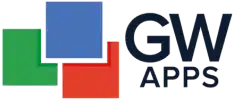GW Apps vs Airtable
We’re often asked about the differences between GW Apps and Airtable, and which product will offer the best solution.
GW Apps has the power, flexibility and security required to build every kind of business app, not just simple request and tracking apps. No coding skills ever required, unlike many Airtable apps.
Why customers are choosing GW Apps
GW Apps empowers teams to easily build and scale the tools they need without requiring scripts or tricky formulas.
GW Apps’ powerful form layout capabilities (such as multiple columns, dynamic layouts, and embedded elements) allow you to build complex, data-rich apps that are easy to understand and use. Airtable just introduced an improved form builder; however, it still lacks useful features such as tabbed forms, customizable buttons, and embedded elements.
Both platforms have good workflow capabilities, but Airtable lacks confirmation dialogs and proper targeting of action buttons. GW Apps also offers service level agreements (SLAs) for workflow stage(s) and platform level analytics reporting, enabling tight management of process or service performance: All the capabilities you need to build an Employee Self-Service Portal.
Need to build Finance, HR or Sales apps where it’s vital only the right people can see or take action on data? GW Apps has the capabilities you need (such as custom and dynamic roles, and workflow stage and field-level permissions) to ensure the safe and secure operation of your apps. Airtable lacks these important features.
GW Apps offers far more competitive pricing based on number of users, averaging $2/user/month. Airtable offers business plans starting at $20/user/month. They have a free plan with limited features for individuals.
Drag-Drop-and-Configure
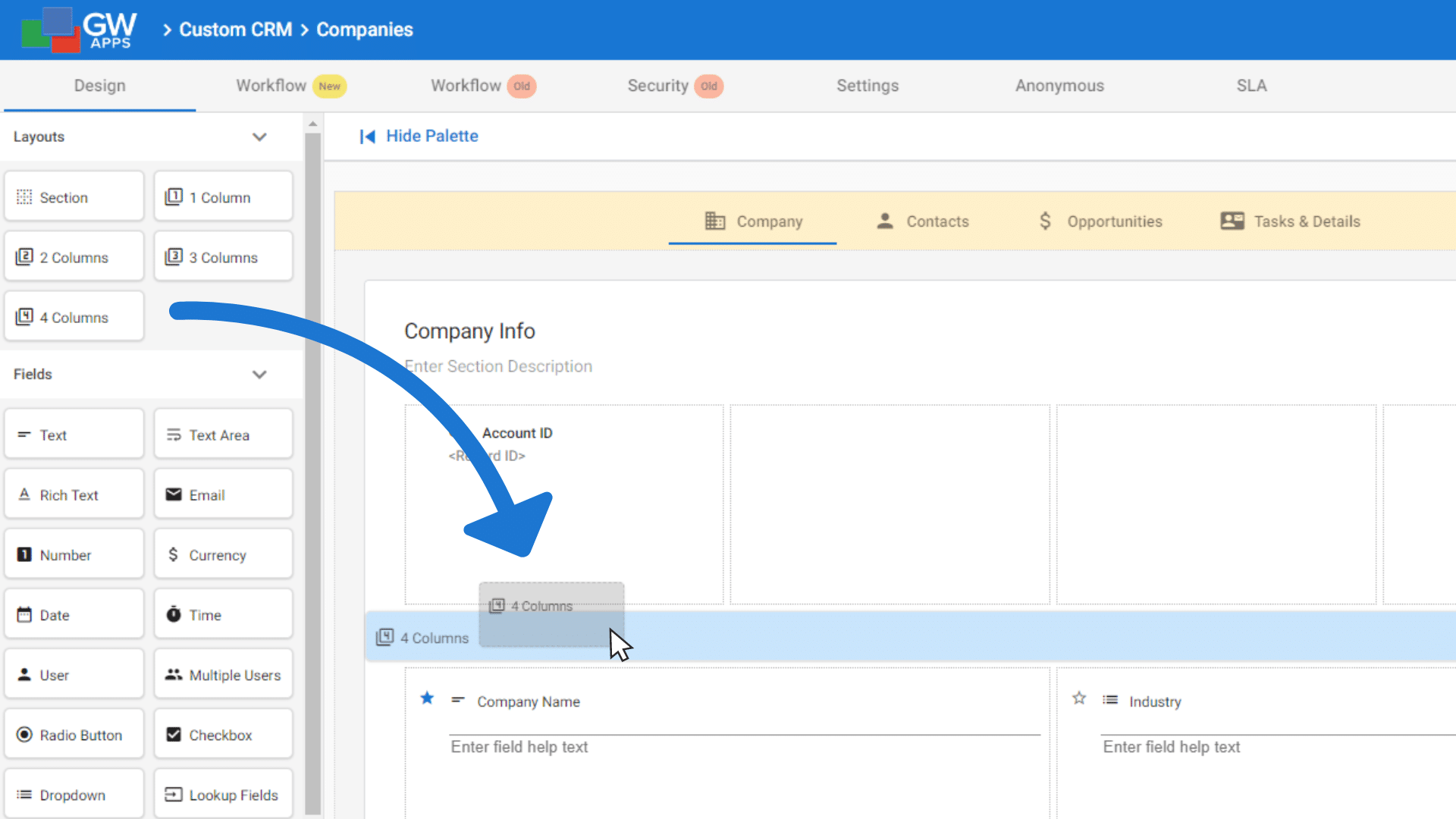
Robust & Flexible Workflow
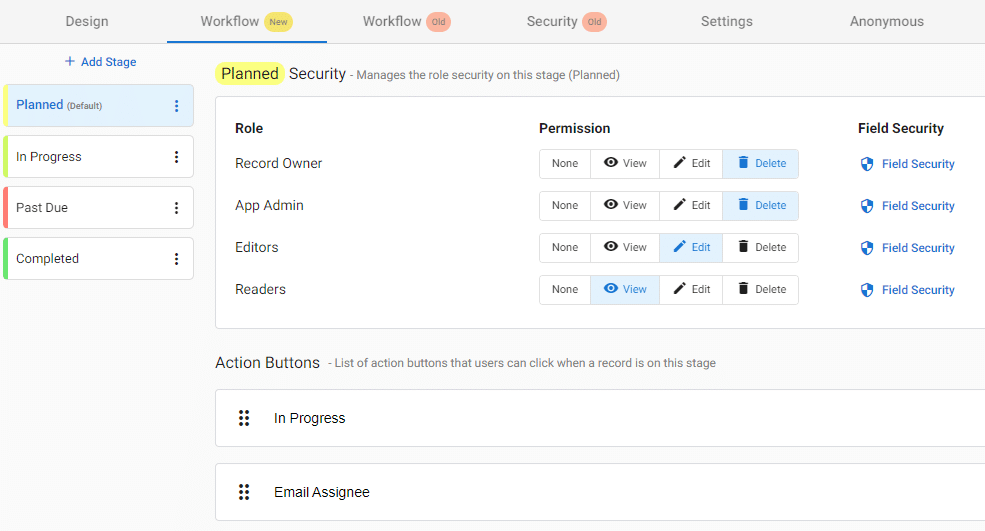
Security

Pricing
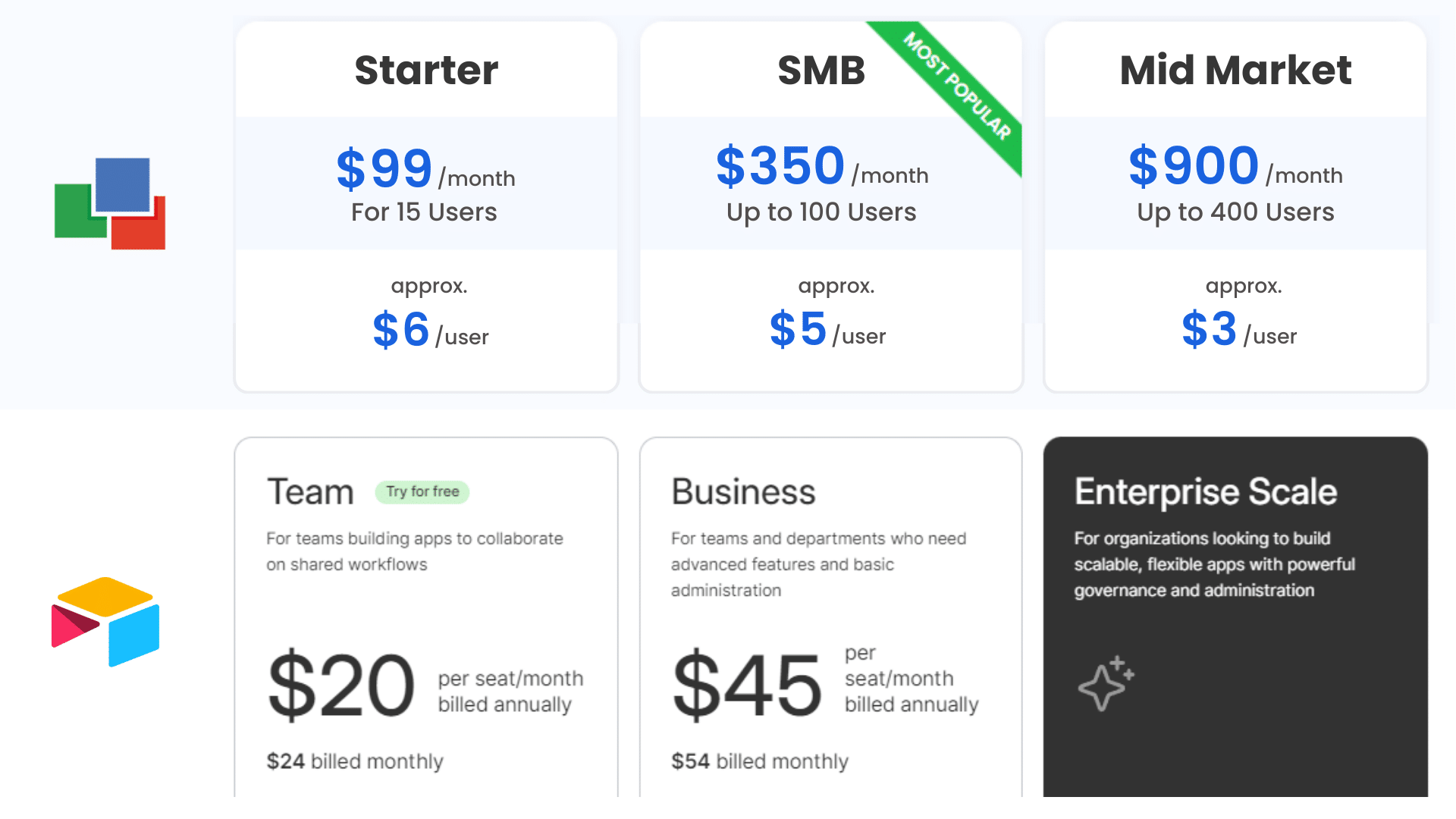
Conclusions
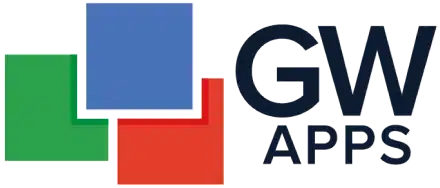
GW Apps is a no-code platform, so you will never need to learn programming or expression languages. Airtable is a low-code platform and relies on programming to unlock its more advanced capabilities. This means more of your line of business users will be able to complete their own apps using GW Apps than Airtiable.
GW Apps excels at creating secure applications for sensitive business transactions where it is vital only specific people can see, edit or take action on specific data, at each stage in the process life-cycle. Applications like Contract Approval Review, Request for Capital Expenditure, Requests to add or modify master catalog records in ERP or Financial systems, and the like will fit better on GW Apps than Airtable. GW Apps inclusion of SLAs and platform level reporting and application organization means that GW Apps is also a stronger candidate for building employee self-service portals.
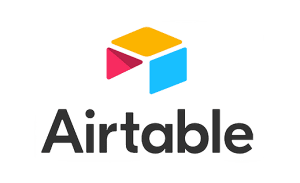
Airtable’s spreadsheet style of interface has undeniable strengths. It certainly simplifies the initial understanding of how Airtable works, both for developers and end-users. It can also create apps that are very fast to work with, if the needs of the app fit well in the spreadsheet-like style. Airtable is more suited to creating apps that surface and process data from existing sources, or apps for tracking or managing simple requests.
Read a detailed comparison between GW Apps and Airtable:
Ready to Get Started?
Start your free 15-day trial and see how easy it is to connect your employees to the services that they need.
